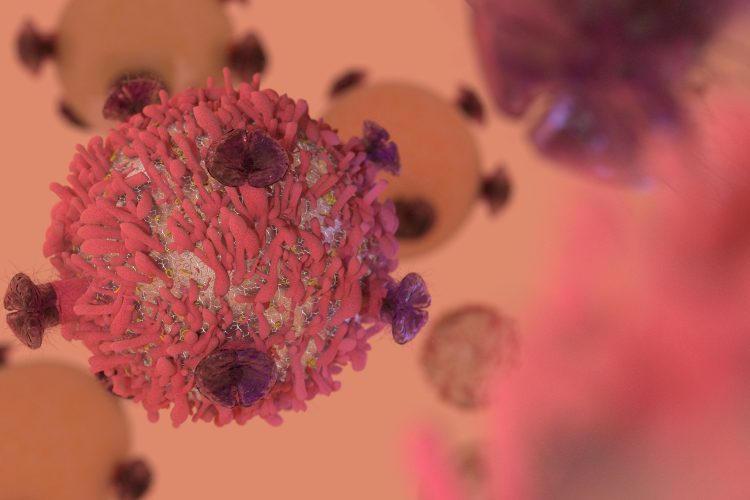Insights into cellular therapies for cancer treatment
Posted: 21 February 2024 | Dr Suresh Nair (Lehigh Valley Topper Cancer Institute), Ellen Capon (Drug Target Review) | No comments yet
Many exciting developments are expected to take place in immunotherapy and oncology in the next few years. We had the privilege of discussing the opportunities of various cell therapies with Dr Suresh Nair, Physician in Chief, who elucidates how Lehigh Valley Topper Cancer Institute is directing research towards better treatments, better outcomes, and better patient experience at a lower cost.


How are stem cell transplants being explored as a potential therapeutic avenue in immunotherapy, and what preclinical evidence supports their effectiveness?
Stem cell transplants have saved patients’ lives time and time again, which led us to launch our own Stem Cell Transplant and Cellular Therapy Program. Stem cell transplants primarily help the immune response through the “graft-versus-leukaemia effect,” and we have to manage the “graft versus host effect.”
Notably, in just the last year or so, we’ve seen significant advances in post-transplant management, which has revolutionised our ability to do mismatch transplants. While historically it has been more difficult to find transplant matches for patients of biracial or mixed ethnicity, new developments are allowing a more diverse population to access life-saving transplants. Recent breakthroughs have made it possible for mismatch transplants to occur with a 50 percent match. Already, this breakthrough has allowed more patients to receive stem cell transplants that otherwise would not have been able to, leading to success stories.
Regarding CAR-T cell therapy, could you highlight the promising findings that have been identified in the early stages of drug discovery, as well as potential challenges?
This is a time when several promising treatments – including mRNA vaccines, BiTE therapies and CAR-T cell therapy, are essentially in competition with each other – they all have a common goal of treating the same disease, but they are approaching the objective from different angles. Ultimately, at Lehigh Valley Topper Cancer Institute we are going to follow the science in the direction that works for our patients. It’s this sort of competition that makes being in cancer care an exciting time because we are working toward better and better treatments, better outcomes, and better patient experience at a lower cost.
With CAR-T cell therapy specifically, off-the-shelf CAR-T cell treatment options are the most exciting and prominent subjects of research right now, especially as treatments for conditions like thalassemia or sickle cell disease. This involves the use of CAR-T cell products derived from donor T cells, hence the term “off the shelf,” making it easier to standardise treatments. There is more to come for CAR-T cell treatments, and I would expect that perhaps in five years, oncologists and hematologists may have to rethink how they approach their fields since clinical research is moving at lightning speed.
What is the efficacy and safety of bispecific T-cell engager (BiTE) therapy, and how do these findings inform its potential application in cancer treatment?
While research to optimise BiTE molecules and refine their capabilities is ongoing, this is where most FDA approvals are taking place as the field is developing so rapidly. Two BiTE therapies are already on the market for the treatment of multiple myeloma, and I expect to see many more BiTEs to be unveiled this year. Before too long, I also anticipate the first BiTE for solid tumours will be approved for metastatic melanoma, judging by the speed of current research and approvals. BiTE treatments and mRNA vaccines are the two areas within immunotherapy that are evolving at warp speed. Both treatments harness the immune system’s power to tackle cancer cells, which is a smart approach.
I’ll also add that at Lehigh Valley Health Network, we have all the competencies to implement these treatments safely at the community level, and we are eager to follow the science since these treatments give our patients new treatment options, particularly our older patients that may not be eligible for other treatments. We are actively looking into opportunities to bring these leading-edge treatments to our patients.
Could you discuss your efforts to increase access to innovative cancer treatments, particularly outside major cities, through programmes like LVHN’s Stem Cell Transplant and Cellular Therapy Program?
Our priority at Lehigh Valley Topper Cancer Institute is bringing leading-edge treatment to our patients, and our new Stem Cell Transplant and Cellular Therapy Program is certainly an extension of that commitment. Importantly, the program opened last month, and I am excited that the program will allow us to bring the latest treatments directly to the community level. Similarly, as a member of the Memorial Sloane Kettering (MSK) Cancer Alliance, we can bring the latest innovations and treatments from the epicenter of research right here, to patients who may otherwise not have access to that same level of care and collaboration. Lehigh Valley Topper Cancer Institute is one of only three cancer centers in the country participating in the Memorial Sloan Kettering Cancer Center (MSK) Cancer Alliance, which gives us access to innovative care practices. In addition to this alliance, we also conduct our own research and participate in clinical trials to bring the benefits of medical research to the community level.
To this end, last August we opened our Cancer Center at Lehigh Valley Hospital–Hazleton campus. The impetus for opening this new cancer center was so LVHN patients, particularly those living in this rural area, could have access to our offerings without having to travel far for their care.
Could you share some success stories or milestones achieved through LVHN’s Stem Cell Transplant and Cellular Therapy Program?
Our Stem Cell Transplant and Cellular Therapy Program is still in its infancy, as we just officially launched the programme in January. At this stage, we are evaluating patients with multiple myeloma as potential candidates for autologous stem cell transplants (ASCT), and patients with hematologic malignancies as candidates for allogeneic stem cell transplants (allo-SCT). Looking ahead, we are also looking to launch tumour-infiltrating lymphocyte (TIL) therapy – which is expected to receive FDA approval soon – as part of our program, for the treatment of metastatic melanoma. A major benefit of now having a Stem Cell Transplant and Cellular Therapy Program is that we are equipped to quickly adapt to new science in real-time and streamline the process of getting our patients the best treatments available.
Dr Amir Toor – who is leading our Stem Cell Transplant and Cellular Therapy Program has more than 20 years of experience with autologous and allogeneic transplants, as well as expertise with cellular therapies for hematologic malignancies. He is well poised to head up our efforts with the new program.
What do you envision for the future of drug discovery in the landscapes of immunology and oncology?
We expect many developments to take place in immunotherapy and oncology in the next few years. One of the most exciting advancements right now deals in the solid tumour space for pancreatic cancer and melanomas. Early data on personalised mRNA vaccines in conjunction with checkpoint immunotherapy is very promising, and at Lehigh Valley Topper Cancer Institute, we are looking forward to getting more involved in mRNA vaccine treatments.
Related to this, as a member of the Memorial Sloan Kettering (MSK) Cancer Alliance, we are gearing up for a study that will give our patients access to a combination melanoma vaccine, which will bring new hope to patients who qualify.
About the author
Dr Suresh Nair, Physician in Chief of Lehigh Valley Topper Cancer Institute
Dr Nair

Dr Nair received his medical degree from Jefferson Medical College. He completed his residency at Geisinger Medical Center and his fellowship at the University of Pittsburgh.
With clinical expertise in melanoma, kidney cancer and immunotherapy, Dr Nair’s focus is to provide the highest quality cancer care, including standard and research treatments. He leads a variety of clinical trials at LVHN to provide leading-edge options to patients. Dr Nair started the hematology/oncology fellowship at LVHN and served as the initial program director.
Dr Nair has been a site principal investigator in the National Cancer Institute Cooperative Group Program for more than 25 years, and was the first Chair of the NCI Early Phase Central IRB. He has been a site principal investigator of more than 50 T-cell checkpoint inhibitor trials at Lehigh Valley Topper Cancer Institute.
Related topics
Cancer research, Chimeric Antigen Receptors (CARs), Immunotherapy, Oncology, Personalised Medicine
Related conditions
Cancer Research, cancer treatment








